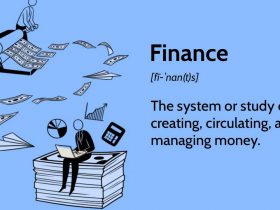The collapse of cryptocurrency exchange FTX has triggered investigations. Aspects of the scandal are reminders that complaints of investment swindles are soaring. The good news? You can protect yourself by taking five precautionary steps.
“Given where the market is, in bear territory, it’s a great environment for scammers to feed on investors’ growing fears,” said Eric Sterner, chief investment officer of Charleston, S.C.-based Apollon Wealth Management. “People are scared of layoffs, of market losses, of inflation. It makes them increasingly vulnerable to scammers’ promises of easy, quick returns.”
Sterner added, “But you can protect yourself with some basic safety steps.”
Of course, you assume you’d never fall for any bunco artist’s con. But maybe your young-adult son or daughter or elderly loved one is more vulnerable.
They could benefit from your eagle-eyed coaching.
Scam Count: High And Growing
One thing’s for sure. Somebody needs coaching. The number of investment scams is exploding. This year through Sept. 30, victims filed just shy of 80,000 complaints with the Federal Trade Commission (FTC).
That puts the scam count easily on track to surpass the 82,181 complaints filed in all of 2021.
And it dramatically dwarfs the 14,797 filed in 2018.
Further, the pain from those scams is rising. This year’s scams cost investors $2.7 billion so far. And that’s before taking account of the FTX cryptocurrency exchange collapse, which occurred in the fourth quarter.
Victims reported $1.8 billion worth of scams in all of 2021. And just $94 million worth in 2018.
Step No. 1: Watch For Red Flags
So, how can you ¡ª or a less experienced loved one ¡ª avoid becoming a victim? Step No. 1 is to be wary of an investment solicitation that raises any of eight red flags:
- Excess urgency. The pitch coaxes you to act fast. Con artists want you to act quickly, before you’ve had a chance to research the investment or check out the sales people.
- Wrong focus. “Any worthy advisor should start by asking questions about you as an investor,” Sterner said. “If all he talks about is some investment, get up and walk out.”
- Fake statistics and testimonials. Do your homework. Try to verify performance statistics. Contact people offering endorsements. If you can’t verify facts, figures and favorable quotes, head for the exit.
- Guaranteed returns. Huckster Bernie Madoff loved to promise exorbitant rates of return. The trouble is, high returns are almost always impossible to guarantee. “If it sounds too good to be true, it probably is not true,” said Paul Brahim, managing director of Wealth Enhancement Group, in Pittsburgh.
- Unregistered securities. Avoid them. The Securities and Exchange Commission (SEC) said, “Generally, offers to sell securities must be registered with the SEC or be eligible for an exemption. To see whether an investment is registered, check the SEC’s EDGAR database (or) call your state securities regulator for more information.”
More Red Flags
- Hidden fees. Many infomercials and online ads offer free seminars and videos. “But later you find out that you have to pay a hefty fee to get the coaching they promise,” the FTC warned. Worse, there’s no way to confirm the success stories that they tout. Don’t get involved, the FTC says.
- Risk-free training. That’s what many investment promotions offer. But all investments involve risk, so offers of risk-free training or coaching or investments are, by definition, bogus.
- Get rich quick. You won’t. “In fact, most people never get back the money they invested,” the FTC said.
Step No. 2: Background Check
The second key step in avoiding becoming a victim? Check the background of anyone who claims to be the right financial advisor for you.
Start by doing an online search for the company that approached you and its officers or promoters.
Next, check out the background, including registration or license status, of anyone recommending or selling an investment. “See if they have a history of complaints,” Brahim said. Here are places you can do that for free:
- Investor.gov.
- FINRA BrokerCheck.
- SEC’s Investment Adviser Public Disclosure (IAPD) website.
- Your state securities regulator.
Step No 3: Asset Custody
With few exceptions, investment advisors must keep clients’ money and securities with an outside custodian. And qualified custodians include banks, registered broker-dealers and futures commission merchants. Ask the custodian to verify that’s where your assets would be.
In the collapse of cryptocurrency exchange FTX, FTX reportedly retained custody of the bulk of client assets. Investigators reportedly fear that enabled client assets to be misused. The vast majority of those assets are said to be unaccounted for.
Step No. 4: Publicly Traded Securities
“Most retail investors should stick with publicly traded securities,” Brahim said. “Those involve more regulation. The less regulation you have, the more opportunities for fraud.”
Step No 5: Explore Liquidity
Always check how liquid your investment would be. “Ask how quickly you can get your money out,” Brahim said. And make sure you see it in writing. Also, find out what fees if any you incur for withdrawing funds. Likewise, is there an early-withdrawal penalty?
Follow Paul Katzeff on Twitter?at?@IBD_PKatzeff?for tips about personal finance and strategies of the best mutual funds.














Leave a Reply